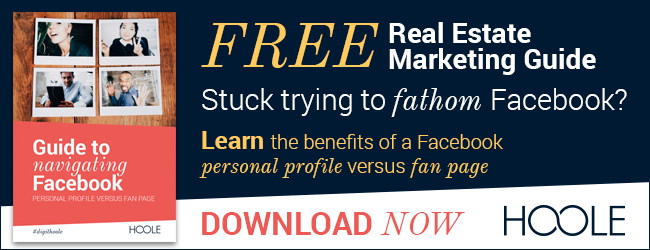The annual REB Awards are a positive way to bring together real estate professionals from across Australia, to celebrate everyone’s successes, small or large. Thank you, Momentum Media, for making this happen.
Interestingly, each year the competition gets closer and closer. As geo-targeted data and local area marketing have come of age, so has the real estate industry’s interest in digital and social media advertising.
Over my three years of judging the REB Awards, I’ve seen the level of knowledge and activities expand in digital marketing dramatically. In my first year of judging, I was trying to compare entries from individual agents (with no social media or digital marketing expertise or funds to spend) against major franchises that had a team of qualified digital staff and million-dollar budgets. They were chalk and cheese!
What’s changed in the REB digital awards?
This year, I observed a more even spread of principals and independent networks alongside the franchises. These smaller players are much more social-media savvy than in previous years. It’s a positive sign that digital media and marketing is becoming more popular and accessible.
Google, Facebook (and, to a lesser extent, Instagram and LinkedIn) are now firmly on the real estate radar. The playing field has levelled out and the depth of understanding and sophistication of activities has improved considerably.
In this article, I share my learnings over the last three years. We’ll see that real estate businesses have come far with their understanding of digital marketing. Importantly, we’ll see how they’ve learned to grow their market share.
Learning from past REB digital awards?
It’s amusing to remember that entrants engaged uni students or the receptionist to run their social media activities. Some more traditional agents and principals continue to regard social media as ‘fluff’. They miss the point that social media is a serious business that can deliver leads and drive revenue.
Social and search ads didn’t get a mention in the first digital awards. The sole focus was on organic posts and how many ‘likes’ you had. Even many digital experts the world over got enticed by the ‘likes’ of Facebook (pun intended). But these vanity metrics became redundant on Facebook in 2012 when your organic page reach was reduced to less than 1%.

How digitally savvy are real estate businesses today?
This year, all entrants were real estate agencies rather than a mix of agencies and individual agents. I was delighted to see the addition of an award category for social media campaigns as well as the general digital marketing award. Finally, it feels like the real estate industry is waking up to the power of digital and social media for local area marketing.
70% of entrants were boutique agencies with independent real estate brands.
Across the board, real estate agencies are becoming more sophisticated with their digital marketing. They’re actively managing their online presence and allocating budgets to paid advertising.
Principals are now clued up on the fact that they need to be driving traffic to their own websites rather than third-party sites or the corporate website directory. The best approach to digital marketing is to be in control of your own destiny, so that you don’t digitally disappear when you change brands.
With all this in mind, if you are still simply posting articles from the portals and real estate news sites to your social feed, then you have a lot to learn. And if you do not run paid advertising campaigns, then you most certainly need to read on.
Who entered the REB digital and social media awards?
70% ‒ Boutique agencies with independent real estate brands.
30% ‒ Franchise offices.
80% ‒ Combination of internal admin staff and external digital professionals or agencies.
20% ‒ Highly skilled in-house creatives or professional marketers.
70% ‒ In-house (all or part) digital marketing.
30% ‒ Full autonomy to external agencies.
Which digital and social media activities were in play?
Tallying up the list of activities and tactics mentioned in the 2019 REB digital and social media awards, below is a table highlighting which activities, platforms and proptech systems got a mention.
Digital activities
- Platforms
- Proptech systems
- Paid advertising
- Custom audiences inc database uploads
- Retargeting
- A/B testing
- Content marketing
- Collaboration, influencers, amplification
- Digital listing kits
- Digital auction bidding systems
- AI and bots
Platforms
- Google Youtube
- Google Display
- Google Business
Proptech systems
- ActivePipe
- Adfenix
- Amplify
- Spoke
- Rex
- Rate My Agent

Key digital learnings from the REB awards
Following are my main observations:
1. Digital sophistication
Real estate agents, in general, are finally finding their feet with digital advertising. Vendors are being asked to contribute to paid advertising beyond the real estate portals. This includes ads across social media, Google search and the Google Display Network (GDN).
2. Technical jargon
Most people are aware of the ‘pixel’. Many are even venturing into the world of retargeting – where you pop up in front of people who have shown an interest (clicked) on your first ad. You might also use retargeting to market properties to people who showed interest in similar properties. With geo-targeting, marketers can put these ads in front of people who expressed an interest in nearby properties.
3. Proptech platforms
Every day, another AdTech platform emerges that offers paid advertising automation. (Three were mentioned in the REB award submissions.) However, I’ve unearthed a dozen technology players with real estate advertising solutions for digital media. Some of these platforms provide 70+ different ads for a single property campaign.
If you’re a CEO, head of marketing or in an IT role within your real estate business, attend our November event to hear our AdTech research firsthand. Our in-depth review of the most advanced AdTech players was conducted over a six-month period and highlights the questions to ask when making a choice.
4. Property campaigns versus brand campaigns
There’s still a lot of focus on property marketing rather than brand or lead generation campaigns. Many agents still grapple with the idea of self-promotion. Many are also (dare I say) reluctant to put their hands in their pockets to allocate funds to digital rather than traditional media. They await their real estate head office to provide solutions.
Many real estate professionals continue to piggyback on vendor-paid property advertising. This means many agents rely solely on promoting their names and faces through property campaigns. This is fine when you have listings, but dire if you don’t, and certainly doesn’t differentiate you from your competitors.
5. Off-marketing property campaigns
There’s a growing movement towards promoting a property on social media first and portals second. Several finalists mentioned they’d reduced their print advertising and redirected funds to digital.
Many touted they could market a property without using real estate portals; off-market listings are a growing campaign offering. Some real estate businesses now sell properties through their own email, social media and search ad audiences. They’re achieving success, becoming masters of their own destiny, and reducing their reliance (and spend) on the portals.
One agency highlighted they have a minimum $150 ad spend on Facebook, per property. Their annual ad spend was approx $50,000 across 200 property sales campaigns, so their average digital media ad spend was approx $250 per property. This is far more economical when compared to portal fees and print ads.
Moving the needle
While I’d give some real estate agencies a high distinction for their digital execution, the industry overall is still in a learning phase. In general, real estate professionals have yet to realise the full potential of digital marketing. What’s evident is that in-house marketing staff do not have the technical expertise to manage their social media ad accounts. Many real estate agencies, therefore, end up with patchy brand activities, ineffective property campaigns and low social media engagement.
Most real estate businesses and networks have a long way to go to achieve an effective level of investment in digital media. When compared with the budgets spent by ecommerce businesses, real estate agencies paid ad spend is low. However, I’m excited to see progress. Next year I hope to give many more grades of distinction.


Join the Conversation - add your thoughts